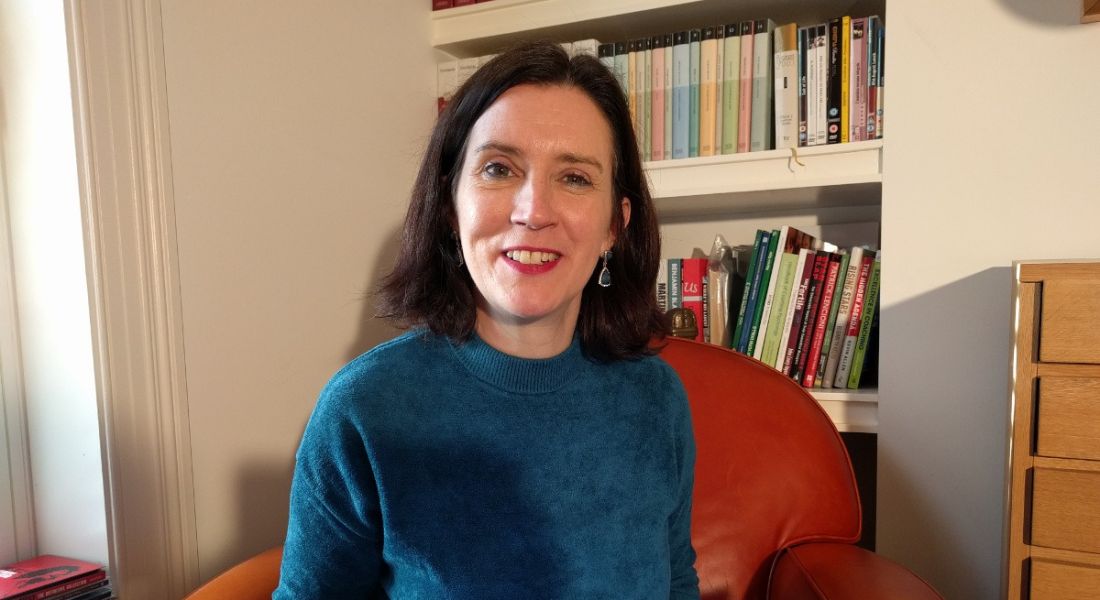A systematic approach to planning your year increases the chances of you fulfilling all your New Year’s resolutions, writes Natalie Bagnall.
‘I can’t believe it’s been a year since I didn’t become a better person.’ That’s a sentiment that probably applies to most of us when it comes to our annual assessment of those New Year resolutions we made and, once again, failed to keep.
Of course, there’s nothing new in this. In ancient times, the Babylonians made promises to their gods at the start of each year that they would return the farming equipment they’d borrowed from their neighbours during the year, something they wouldn’t have had to do if they’d sent their ards, winnowing scoops and model hoes back to them in the first place.
In medieval times, knights took the ‘peacock vow’ at the end of the Christmas season each year to reaffirm their ‘commitment’ to chivalry – no doubt a case of locking the door after the horse has bolted!
But, while our resolutions may have got more sophisticated in modern times, they share the common trait of remaining notoriously difficult to stick to with their predecessors, which begs the question: why?
It is argued that the main reason people jettison their New Year resolutions very early on is that they were simply too unrealistic to begin with – too big, too transformational, too aspirational.
Psychology Today points out that the majority of resolutions are way out of kilter with our internal view of ourselves, and are thus unworkable. Making a resolution work is essentially about changing our behaviour and, to do that, we have to change our thinking or ‘rewire’ our brain.
It’s all very well to say: ‘I want to be a better person’ or ‘I want to get promoted’ but actually seeing this through is quite a different matter.
Leadership theory can help by offering a systematic and focused approach to implementing our resolutions and helping us to stick to our plans for a new version of ourselves.
To help ease you back into January, here are some suggestions on how to use leadership skills to ensure your New Year resolutions stick, and ensure that 2018 brings the change you are looking for.
Focus on a single thing
In your role as a leader, you wouldn’t prepare a strategy with a bunch of different goals. Do the same with your New Year’s resolution. Focus on one single resolution (the one that keeps you up at night) and stick to it.
Don’t expect change immediately
A small change, say once a week, will help you form a new habit. Check your progress frequently and make the change part of your lifestyle rather than a post-Christmas fad. Remember that Rome wasn’t built in a day.
Break resolutions down into smaller pieces
Research proves that the practice of setting goals has been strongly associated with higher levels of wellbeing, and, similarly, setting realistic and measurable goals is a golden rule in business planning.
So, rather than resolving to ‘get a new job’, how about starting off with ‘dust down my CV’? Make the steps to achieving your resolution small enough to celebrate progress between milestones.
Take a tip from RTE’s Operation Transformation, where contestants celebrate (very) small losses in weight, which make up a larger achievement. Break down your resolutions into bite-size pieces. At the end, you’ll find that the whole has become much greater than the sum of the parts.
Make the change resonate long-term
In the same way as you will have created a clear vision for your business in 2018, make your resolution part of a broader plan for change.
If you’re unhappy in your job and seek a change, think forward about a career change that will transform the future rather than just the next few months. Are you using your top strengths? Is the real you showing up in the office? If you’re not doing something that reflects your personal values and utilises your strengths, you’ll feel undervalued.
Get help
In the same way you ask for feedback from your manager to improve your performance at work, seek out a resolution buddy, someone close to you who you can report success to and get advice from.
This individual can offer guidance and support, and can also be there to listen. Being able to rely on an empathetic ear can be particularly important when you feel like throwing in the towel.
Keep learning
In business, priorities change and skills need to be adapted. Similarly, continuous learning makes a difference to our mental wellbeing.
Mental Health Ireland recommends learning a new skill to give yourself a sense of achievement and a new confidence. In the same way as having a meaningful career discussion with your boss gives direction, so too does continued learning enhance self-esteem and open up new opportunities.
What can you do today?
The business world is about immediacy. You’re drawn into what’s happening now, today. The sudden resignation of a key employee. A political crisis closing off a market to your sales team.
This sense of urgency creates clear thinking. What’s the one thing you can do today, right now, towards improving your professional life?
Of course, following these steps requires one crucial input from the person making the resolution, and that is honesty. No promise or resolution should be made unless you are honest about confronting the need to change.
Being honest will clear the way for you to achieve your goals and to set yourself up for something transformative, something great even, in 2018. It might even prompt you to return that tractor you borrowed, too!
Natalie Bagnall is co-founder and director of The Leadership Rooms




